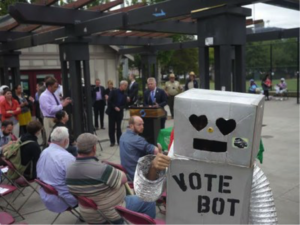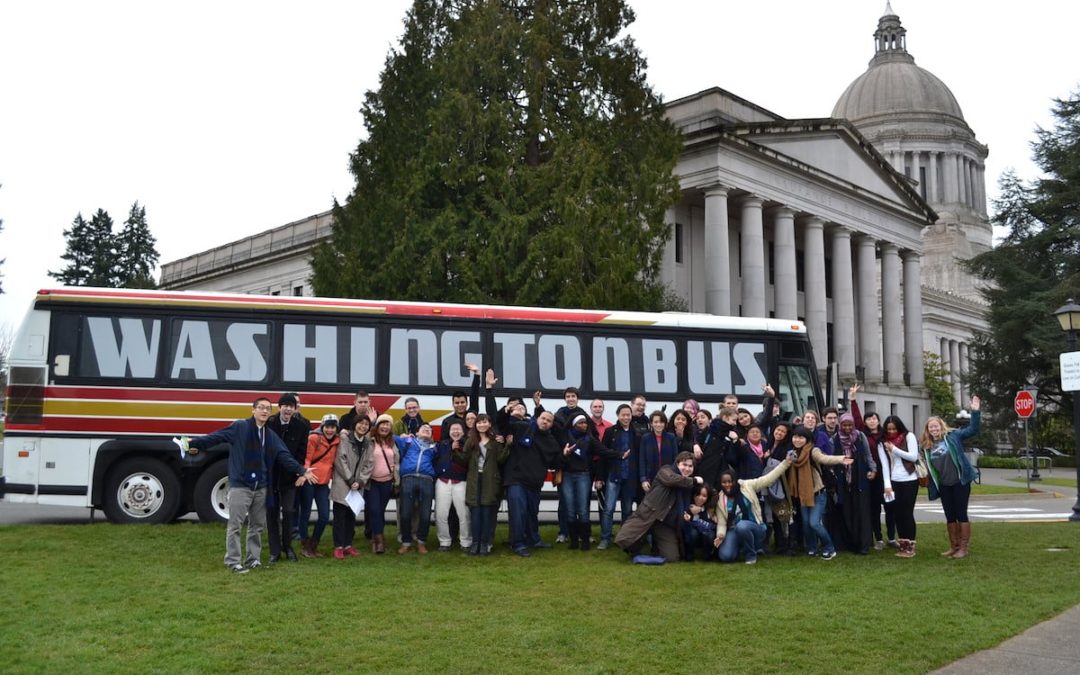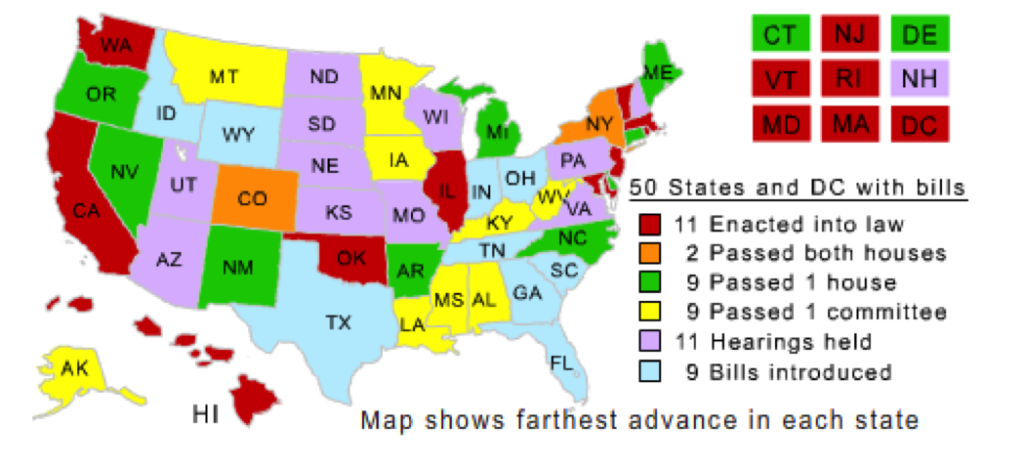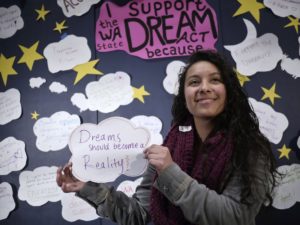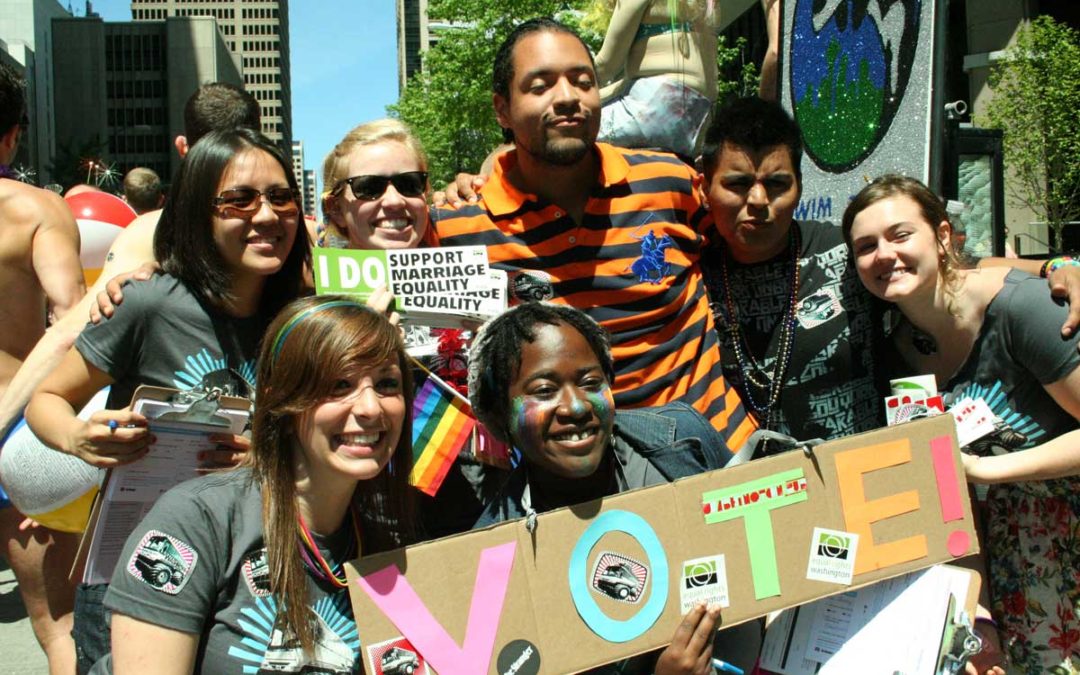
Hope For The New American Electorate
It’s always bizarre to see the political phenomenon you learn about in class manifest outside in the field. This weekend I got an up close and heartbreaking look into why politics work how they work.
This weekend the YVEC campaign took to Broadway street in the lovely city of Tacoma in a valiant effort to get all of its eligible residents registered to vote. Walking around Tacoma pride, I myself was encouraged to see droves of queer brown youth, out and proud. What would happen if all these beautiful people were registered and excited to vote, I thought? What kind of world would we live in then!
The afternoon went on and although the sun seemed to follow us more closely, voter registrations were piling up at our booth. Yet my excitement and energy to register members of the new American electorate: young people, queer identified people, people of color, low income residents and young single women, began to dwindle. Time after time again I ran into Black folk, queer identified folk, youth folk and any combination of them, who did not believe their vote would count.
One particular incident with a black man gave me a glimpse of how severely these communities were impacted by years of under representation in politics. I asked him if he was registered to vote, and he told me he was not. Disheartened, I moved on but he called me back and continued on to explain why he did not think Black people even had a place to vote when they had years and years of oppression they had yet to overcome. I tried to tell him what we were doing at the Bus and how we thought we could change that, but he was not the first or second or even the third individual of color I tried to engage who expressed that sentiment. I decided to put down my clipboard, sit down and hear what he had to say.
At the end, he did not register, but I got his name, thanked him for his time, and we agreed to disagree. During the entire 15 minute conversation I watched as one of my fellow fellows registered 2-3 enthusiastic older white voters and wondered if I had wasted my time. Later, during a debrief conversation with Karter (our field leader and Fellows Staff member), he told me that although many individuals do feel disillusioned with voting, sometimes it’s not about convincing them to register. Sometimes it’s about taking the time to listen and understand why they feel the way they do.
Although this interaction got me to think significantly about what work is actually possible in changing the dynamics in politics, I did leave Tacoma with hope. Earlier on that day, I managed to register a voter, a young black man who Karter had spent a while trying to register. I knew he only registered with me because he was trying to flirt with me but still. The fact that he was more comfortable registering with a young black girl rather than (no shade) Karter, says we got something right about who should be out here doing this work. If we see people like us encouraging us to do something, it might not erase years of disillusionment – but, sometimes, that might be just the trick. And we have to keep trying until all the young queer black folk are registering all the other young queer black folk. Until then, no ask has gone to waste.
This blog post was written by Gladys Gitau, 2014 Bus Fellow and Campaign Manager for the Youth Voter Engagement Campaign (YVEC), a campaign aimed to engage the new American electorate by registering young voters as well as underrepresented voters.


